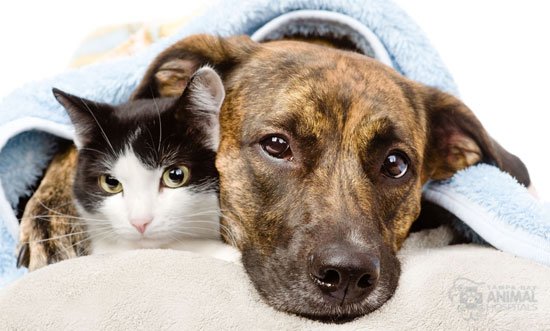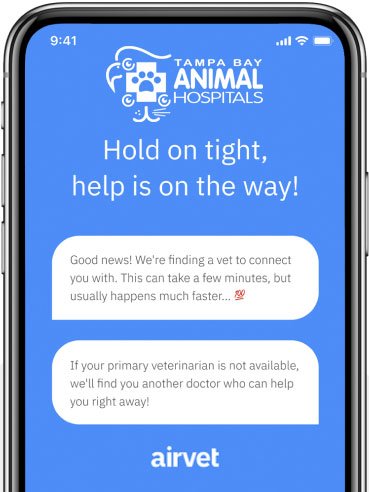Poison Prevention For Your Pet

Although human and veterinary drugs are the most obvious sources of pet poisoning, some seemingly innocuous things around your home can be harmful—even fatal—to your pet.
It is normal to want to share a yummy treat with your pets. In some cases it is even ok. (Given that your pet does not have food allergies.) However, there are several foods that we can all enjoy daily but can make your pet extremely ill. If you suspect that your pet has ingested any items from this list, contact the ASPCA Pet Poison Control Center hotline and your Veterinarian immediately. ASPCA Animal Poison Control Center at (888) 426-4435.
Keep these foods away from your pets: Alcohol, avocado, chocolate, coffee, caffeine, citrus, coconut, coconut oil, grapes, raisins, macadamia nuts, milk, dairy, nuts, onions, garlic, chives, raw meat, eggs, bones, salty snacks, Xylitol, and yeast dough.
A growing epidemic
Each year thousands of dogs and cats needlessly suffer and many die from accidental ingestion of household poisons, including popular houseplants, medications, common foods and pesticides. Household hazards lay in wait… do you know where to look for them?
Budding Poisons
They may be pretty, but some plants are poisonous – even deadly. As little as a single leaf from any lily variety can be lethal to cats.
Others to avoid include Amaryllis, Azaleas, Christmas tree pine needles, Chrysanthemums, Daffodils, Easter cacti, Holly, Hyacinths, Mistletoe, Mulch with cocoa beans, Oleander, Poinsettias, Sago palm and Tulips.
Toxic Meds
Acetaminophen is found in more than 200 prescription and non prescription formulations such as Tylenol, Hydrocodone (Vicodin) and Lorcet, and reduces our pains and fevers. But it only takes one pill to kill a cat and ingesting it can cause kidney failure and liver damage in dogs. Dogs are most commonly poisoned by ibuprofen, enticed by the pill’s sweet coating. Common brands of ibuprofen include Advil, Midol, and Motrin, although it also is available in many generic formulations.
The Wrath of Grapes
The Animal Poison Control Center advises that as few as seven grapes can be toxic to dogs. Currently, the exact toxic component remains unclear, but symptoms can last several days to weeks- if your pet responds to treatment. Other toxic foods include avocados, chocolate, coffee, raisins, nutmeg, onions, garlic, raw salmon and the sweetener Xylitol which can be found in sugar free candy and gum.
Antifreeze
Common sense may tell you that antifreeze is deadly, but are you aware how often pets are exposed to it? Look no further than your garage or driveway, on the street or in parking lots. Cat litter or sand absorbs the sweet-smelling fluid and will prevent pets from licking it. A pet-safe antifreeze is also available at stores.
Cleaners
A clean house is important, but be careful where you store potentially hazardous cleaning products. Pets can gain access to bottles found in lower cabinets or the trash can. In particular, bathroom cleaners containing bleach or lysol can cause very serious chemical burns on the tongue and upper esophagus if licked and consumed.
Deadly Flea Products
Some flea products are more harmful than the fleas themselves. Many over-the-counter treatments contain the toxins pyrethrin and permethrin, an insecticide commonly used to kill fleas on pets. Before buying a topical flea product, call us to discuss the best options for your pet’s lifestyle and environment.
Top Toxins
Pets are commonly treated for ingesting these products: acetaminophen, ibuprofen, plants, particularly lilies, human food, household cleaners, antifreeze, over-the-counter flea treatment, and pesticides.
Toxic-Free Tips
A few simple measures can prevent accidental poisoning:
- Use covered trash bins to prevent access to disposed medications, empty cleaning bottles, dental floss and food.
- Keep pets out of the garage or shed, away from oil and antifreeze leaks from cars.
- Don’t store cleaners under sinks.
- During the holidays, cover the tree water so pets can not drink out of the stand. Pine needles are poisonous.
If you think your pet may have ingested something toxic, call us immediately.
- Behavior (11)
- Caring for your pet (263)
- cat (4)
- Community Events (19)
- dog (6)
- From Our Clients (15)
- Happy Tails (8)
- News (418)
- Press (53)
- Products (2)
- Questions (4)
- Recalls (1)
- Special Offers (5)
- Tips & Advice (231)
- Uncategorized (19)
- Veterinary Services (48)


